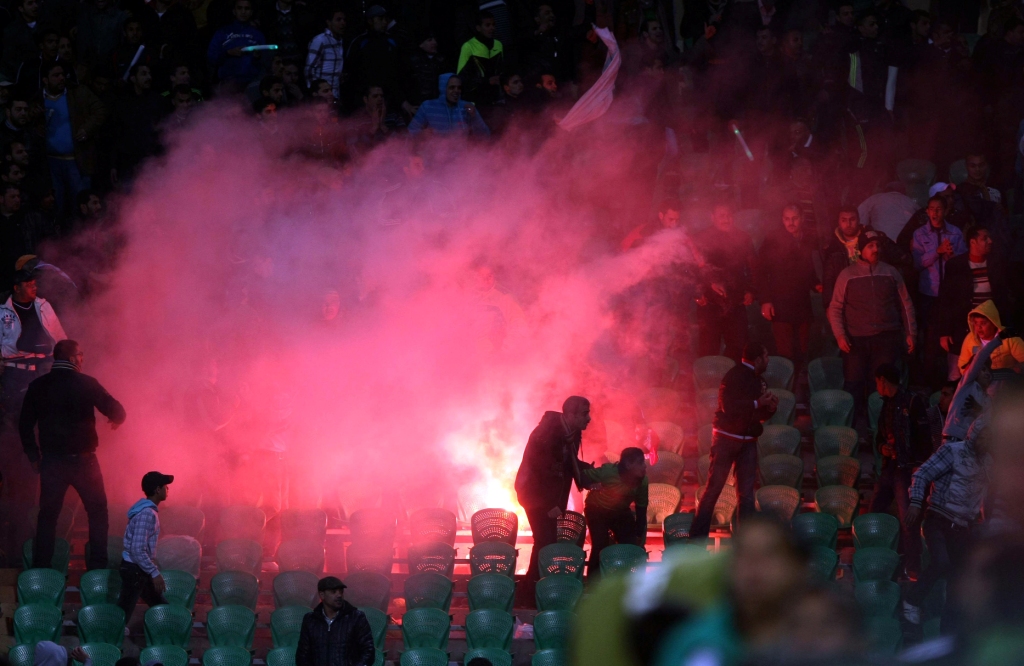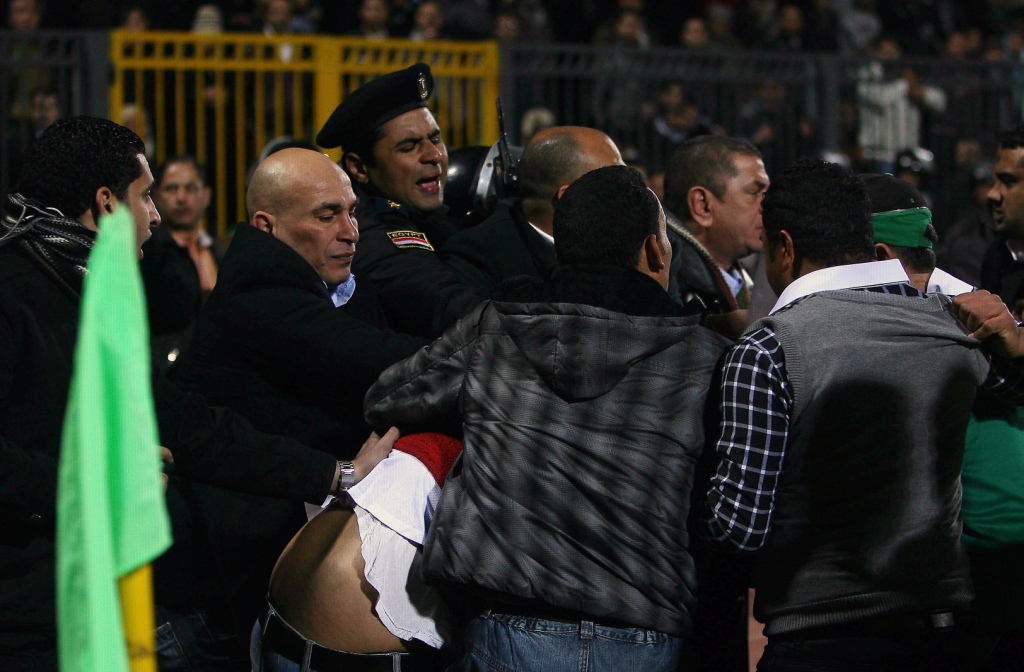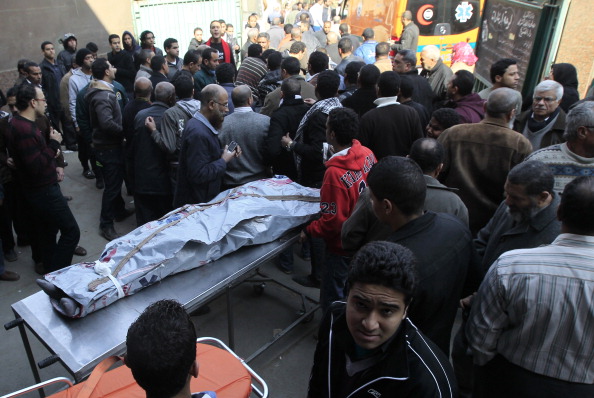By Andrew Warshaw
February 2 – Three days of national mourning have been declared by the Egyptian authorities after at least 74 people died and over 1,000 were injured in one of football’s deadliest cases of fan violence for years.
Riots broke out when fans invaded the pitch after hosts and Al-Masry upset fierce rivals Al-Ahli, Egypt’s most successful club, 3-1 in Port Said.
FIFA President Sepp Blatter, ironically spearheading a campaign to clean up the game off the field, described the bloody events on it – the worst since about 80 people were killed in a stampede before a Guatemala-Costa Rica World Cup qualifying match in October, 1996 – as a “black day” for football.
“I am very shocked and saddened to learn this evening that a large number of football supporters have died or been injured following a match in Port Said, Egypt,” Blatter’s statement said after all leagues in Egypt were suspended.
“My thoughts are with the families of those who have lost their lives this evening.
“Such a catastrophic situation is unimaginable and should not happen.”
Almost a year since Hosni Mubarak was overthrown and replaced by an army council the country is still gripped by lawlessness.
Such is the political chaos that the tragedy was inevitably attributed to the current regime for deliberately allowing it to happen.

Television pictures were inconclusive in terms of laying blame but protest marches are being planned against the riot police’s apparent inability – or refusal – to contain the worst single incident since the overthrow of Mubarak, while emergency meetings of the cabinet and parliament have been called.
“Down with military rule,” thousands of Egyptians chanted at Cairo’s main train station following Egypt’s worst soccer disaster which, as it happened, coincided with the African Cup of Nations in Gabon and Equatorial Guinea for which Egypt failed to qualify despite winning the tournament a record seven times.
Al-Masry and Al-Ahli have a long and fierce rivalry.
The fighting is believed to have started after Ahli fans unfurled banners insulting Port Said.
Al-Masry fans poured onto the pitch and attacked Al-Ahli players before turning to attack rival supporters.
Most of those killed were trampled to death in a stampede when the crowd panicked, or were thrown from terraces.
At the height of the disturbances, rioting fans fired flares straight into the stands.
The changing rooms were used as makeshift treatment centres.

“The rush caused a stampede, people were pushing each other against the metal door and stepping on each other,” said one witness who attended the match.
“We saw riot police firing shots in the air, and then everyone got scared and kept pushing against the locked door.
“We didn’t know whether police were firing live rounds or not.
“People were crying and dying.”
Some believe the violence was deliberately orchestrated as revenge against Al-Ahli’s “Ultras”, who played a significant role in defending Cairo’s Tahrir Square, the heart of the uprising against Mubarak.
“It was orchestrated by the military council to target the Ultras,” said Abdullah el-Said, a 43-year-old driver in Port Said.
“The military council wanted to crush the Ultras because they sided with protesters ever since the revolution began.”
Contact the writer of this story at zib.l1751315614labto1751315614ofdlr1751315614owedi1751315614sni@w1751315614ahsra1751315614w.wer1751315614dna1751315614
Related stories
February 2012: Dozens killed in football riot in Egypt

